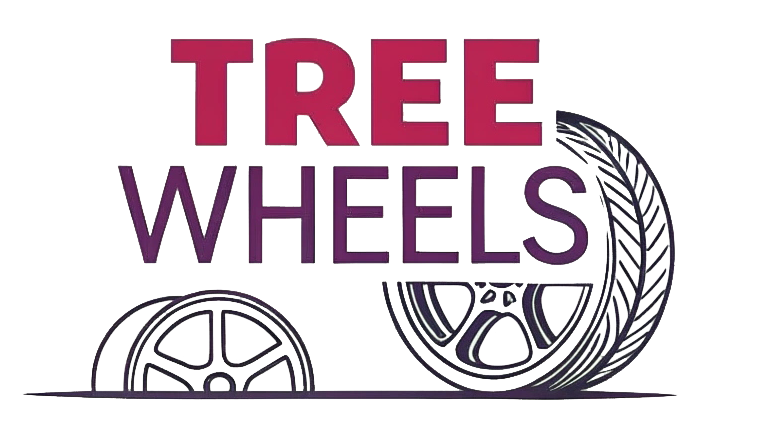Aftermarket wheels can offer a variety of benefits, but they also come with some drawbacks. Are they right for your vehicle? Let's explore both sides.
Aftermarket wheels provide better customization options and more style choices compared to OEM. However, there are some potential issues to consider, like quality concerns and compatibility. Understanding these factors can help you make a better decision.

The question of whether aftermarket wheels are worth it comes down to your specific needs and budget. For many car owners, aftermarket wheels offer an affordable way to improve the look and performance of their vehicle. But is it always the best choice? Let's break down the advantages and disadvantages.
What are the disadvantages of aftermarket wheels?
While aftermarket wheels can be appealing for their aesthetic and performance improvements, they have some potential downsides. One of the main concerns is the quality. Not all aftermarket brands offer the same level of quality as OEM manufacturers, which can lead to safety issues if the wheels aren't built to proper standards. Another disadvantage is the risk of poor fitment or compatibility issues, especially if you're not buying from a reputable source. In some cases, aftermarket wheels can negatively affect the overall ride quality or handling of your vehicle if they don't match your car’s original specifications.

Additionally, many aftermarket wheels may not meet the same safety standards as OEM wheels. This could be particularly concerning if you live in areas with harsh driving conditions, like winter weather. It's essential to carefully research any aftermarket wheel brands you're considering to ensure they meet or exceed safety standards.
Is it worth getting aftermarket wheels?
So, is it worth the investment to go for aftermarket wheels? If you’re looking for a more customized look or improved performance, they can be a great option. Aftermarket wheels allow you to choose the size, style, and finish that best matches your car’s aesthetic. For many enthusiasts, it's an opportunity to upgrade their vehicle without the high costs of OEM options.
However, if you're mainly looking for durability and long-term performance, OEM wheels may still be a safer bet. Keep in mind that while aftermarket wheels can offer improvements, they might not always live up to the standards of OEM wheels in terms of longevity and reliability.

In the end, it depends on what you're willing to invest and what you're hoping to achieve with the upgrade. If you're seeking a cost-effective solution to enhance your car’s appearance or handling, aftermarket wheels might be the right fit for you. But remember, the quality varies across different brands, so choose wisely.
Do aftermarket wheels decrease value?
A common concern among car owners is whether aftermarket wheels can decrease the value of their vehicle. The answer isn’t straightforward—it depends on the quality of the wheels and the market you're in. In general, well-made aftermarket wheels can actually increase the value of your car, especially if they improve its appearance or performance. However, low-quality or poorly fitted aftermarket wheels could lower the value, as potential buyers might see them as a sign of poor maintenance or a lack of care.

For some buyers, the appeal of customization can add value, especially in niche markets like the performance car sector. For others, especially those looking for an OEM experience, aftermarket wheels might not be as desirable. Ultimately, whether aftermarket wheels decrease value comes down to their quality and how well they fit the car's overall look and performance.
What's the difference between OEM and aftermarket wheels?
OEM (Original Equipment Manufacturer) wheels are the wheels that come standard with your car when you buy it from the dealership. These wheels are made to meet the exact specifications of the car's design, ensuring perfect fitment and performance. On the other hand, aftermarket wheels are produced by third-party companies and can offer a variety of styles, sizes, and finishes.
| Feature | OEM Wheels | Aftermarket Wheels |
|---|---|---|
| Customization | Limited to factory options | Wide variety of styles and sizes |
| Fitment | Perfect fit for your vehicle | May require modifications |
| Quality | Meets manufacturer standards | Varies by brand |
| Performance | Designed for optimal performance | Can improve performance but may vary |
| Price | Higher price | Typically more affordable |
The main difference lies in the flexibility and customization options with aftermarket wheels. With aftermarket wheels, you can choose a design that reflects your personal style or provides a specific performance boost, such as lightweight wheels for better speed or forged wheels for extra strength. However, the tradeoff is that aftermarket wheels may not always meet the same strict safety or durability standards as OEM wheels, so you need to carefully consider the brand and model.

Conclusion
Aftermarket wheels offer a chance to customize your car, but they come with risks, such as compatibility and quality issues. If you're looking for a high-quality, long-lasting investment, OEM wheels may still be the better choice.
TreeWheels specializes in high-end, customizable forged wheels that combine quality and style—perfect for your next upgrade.



